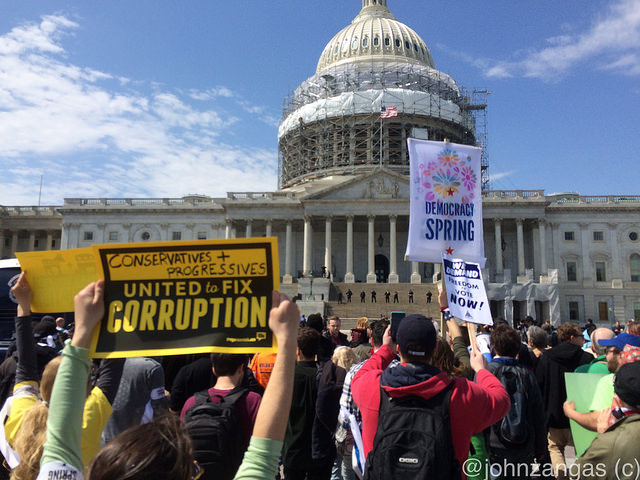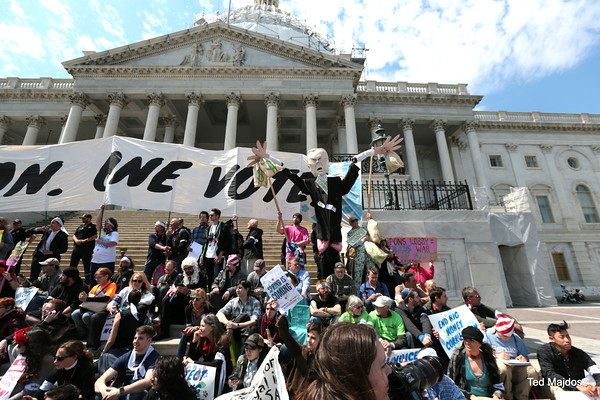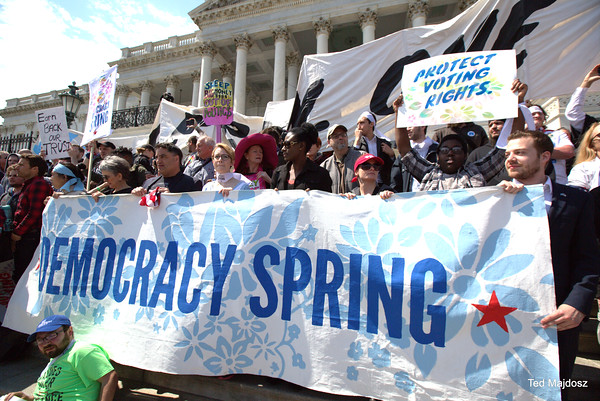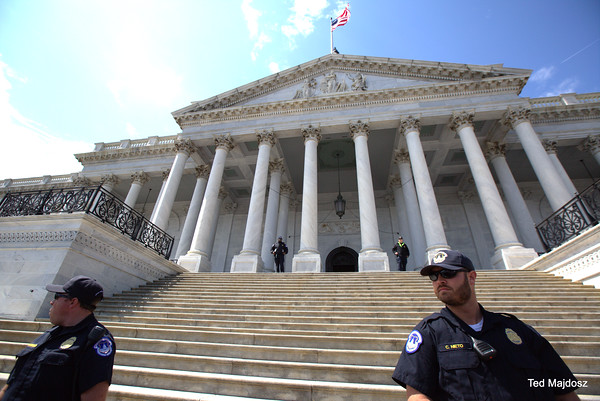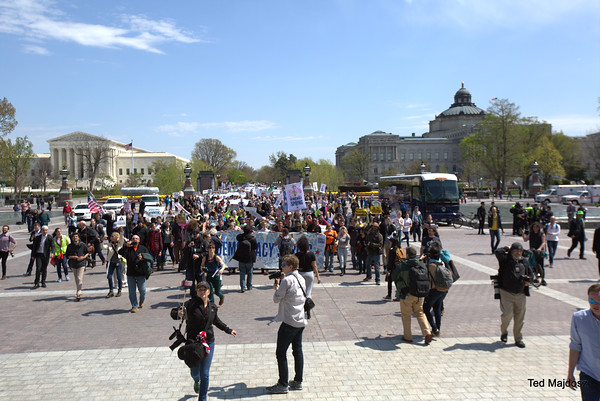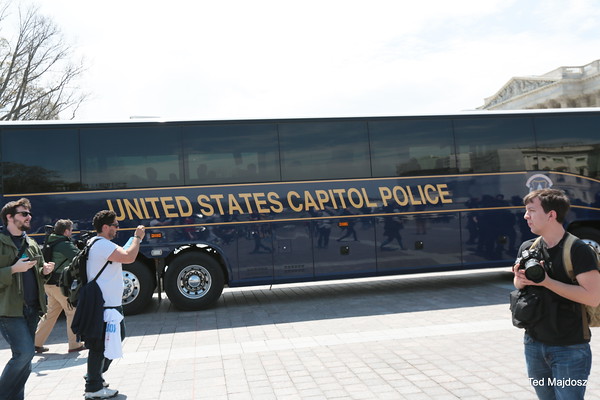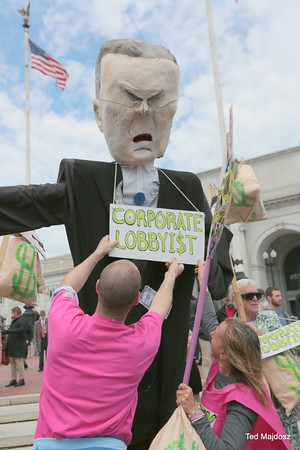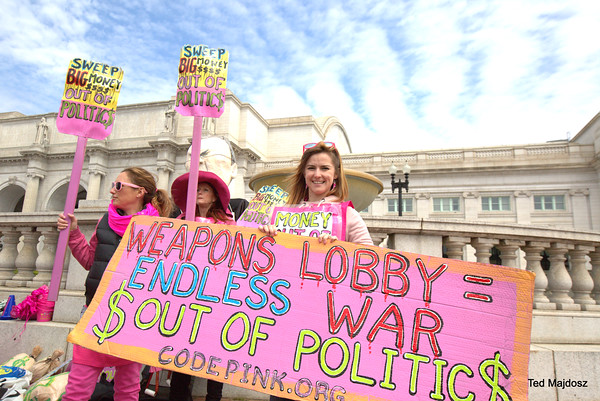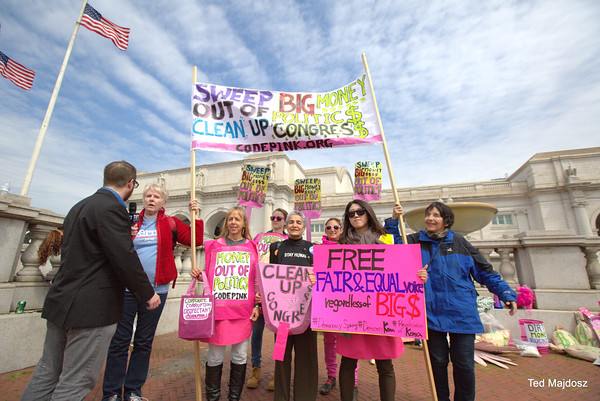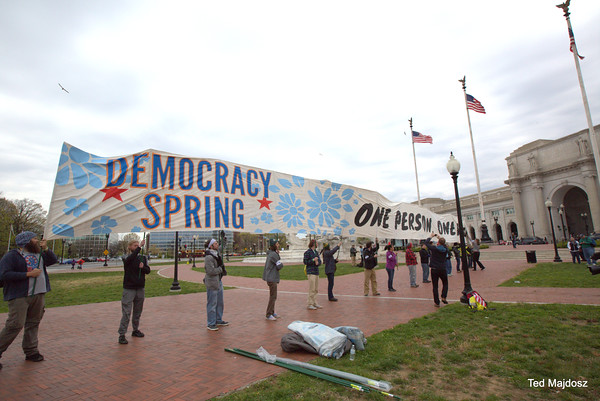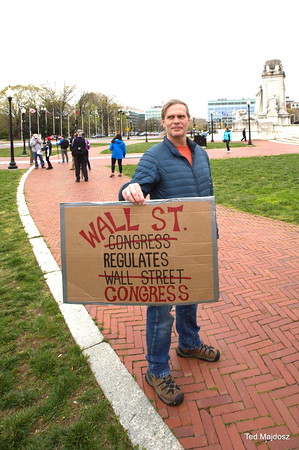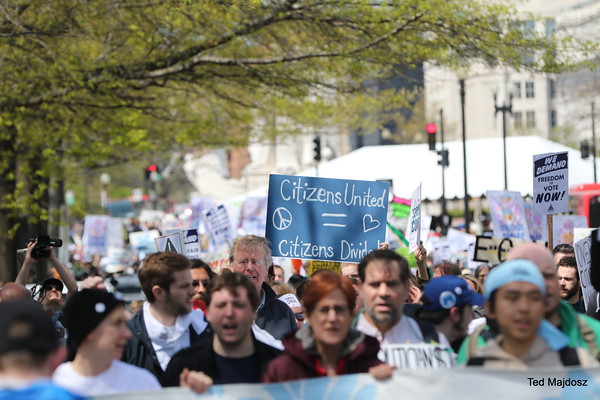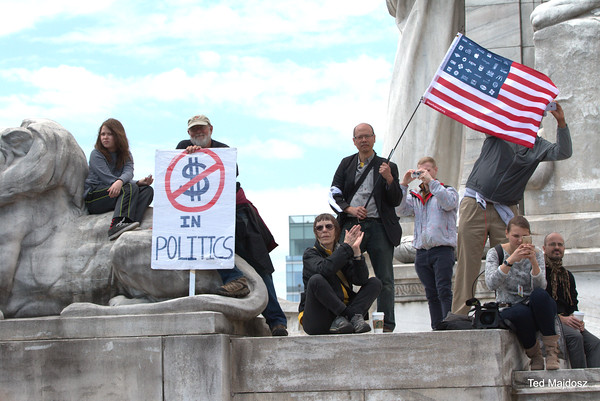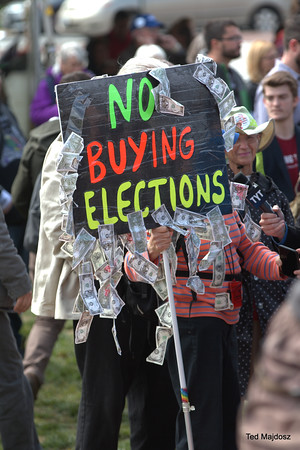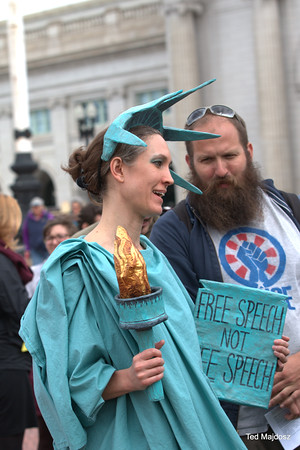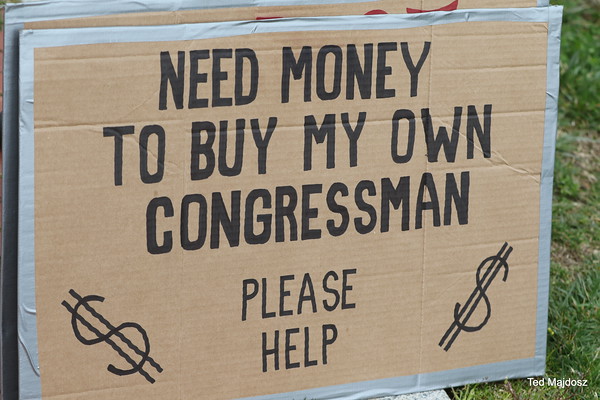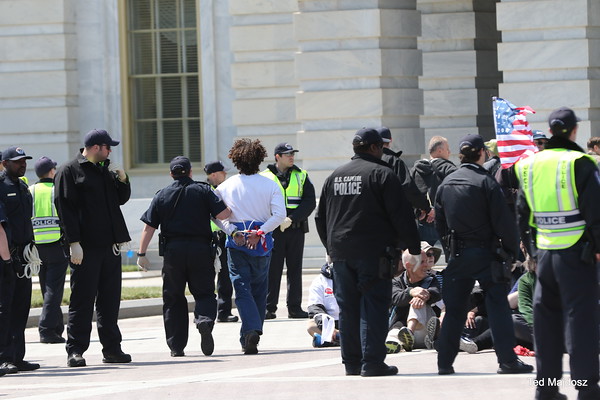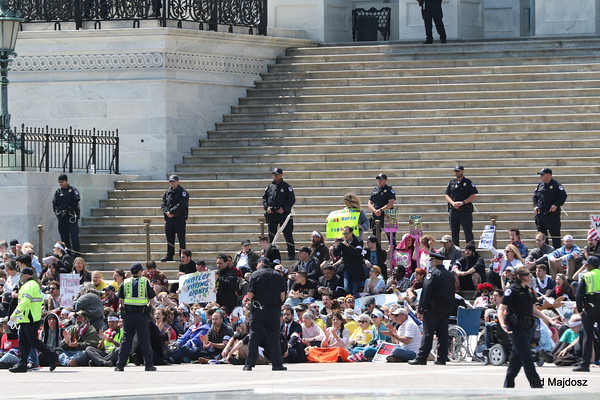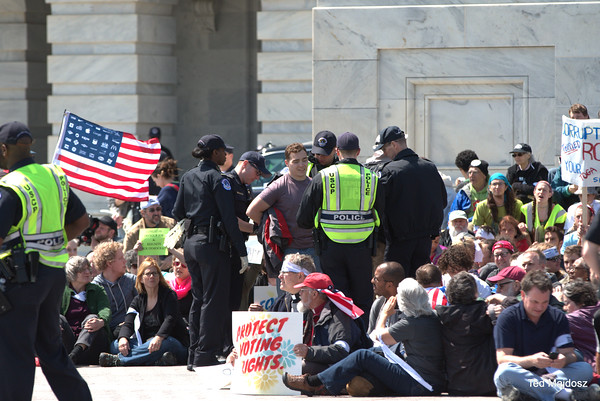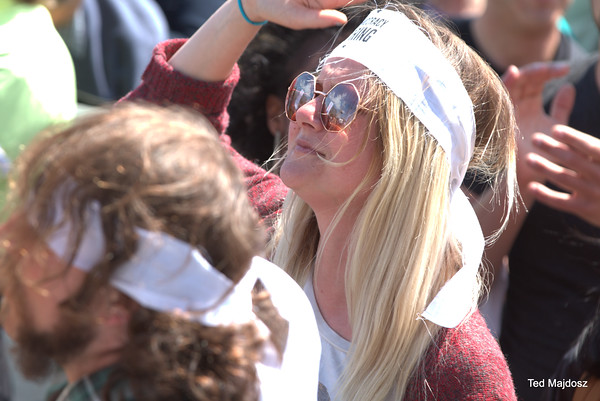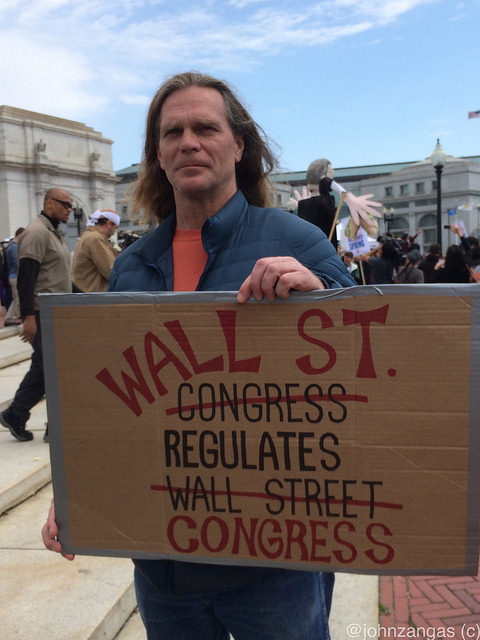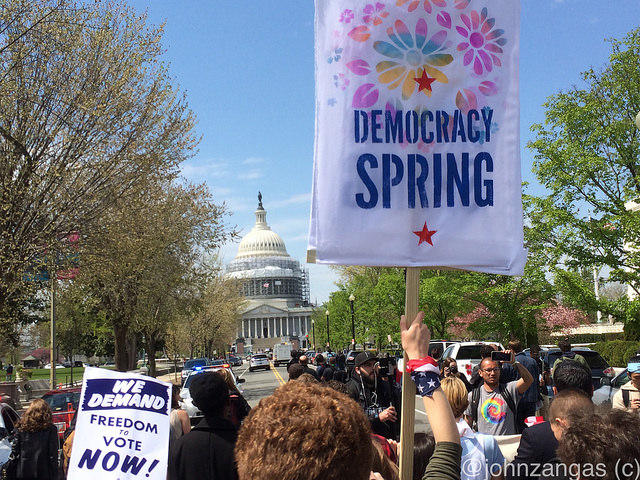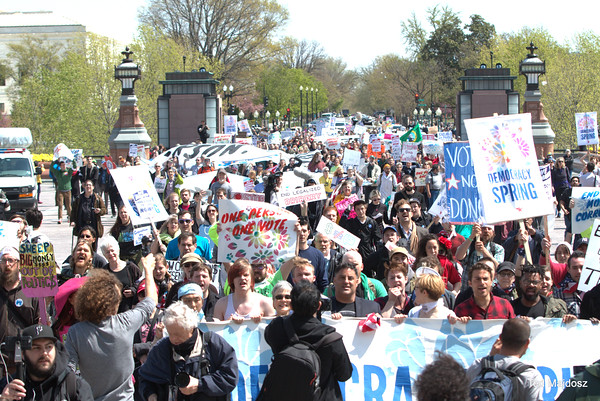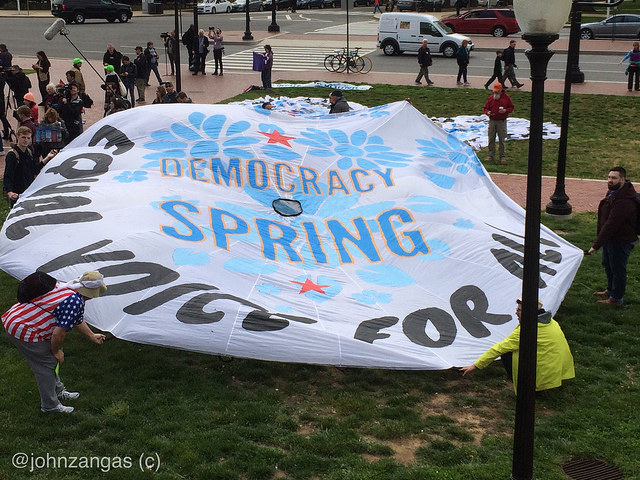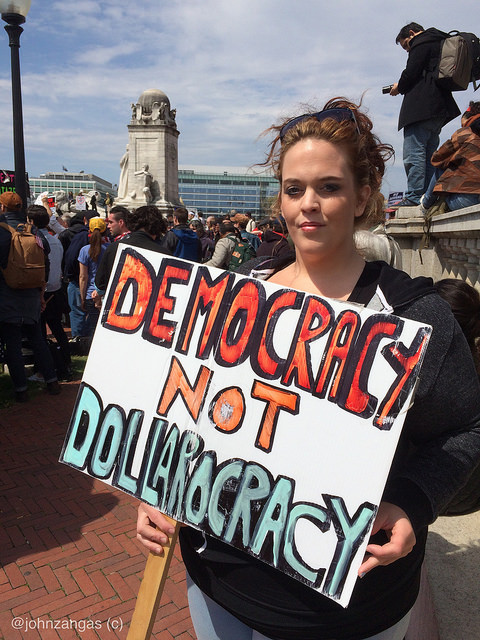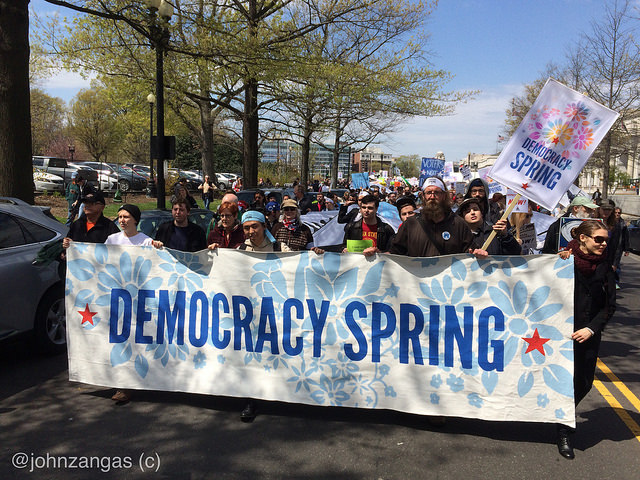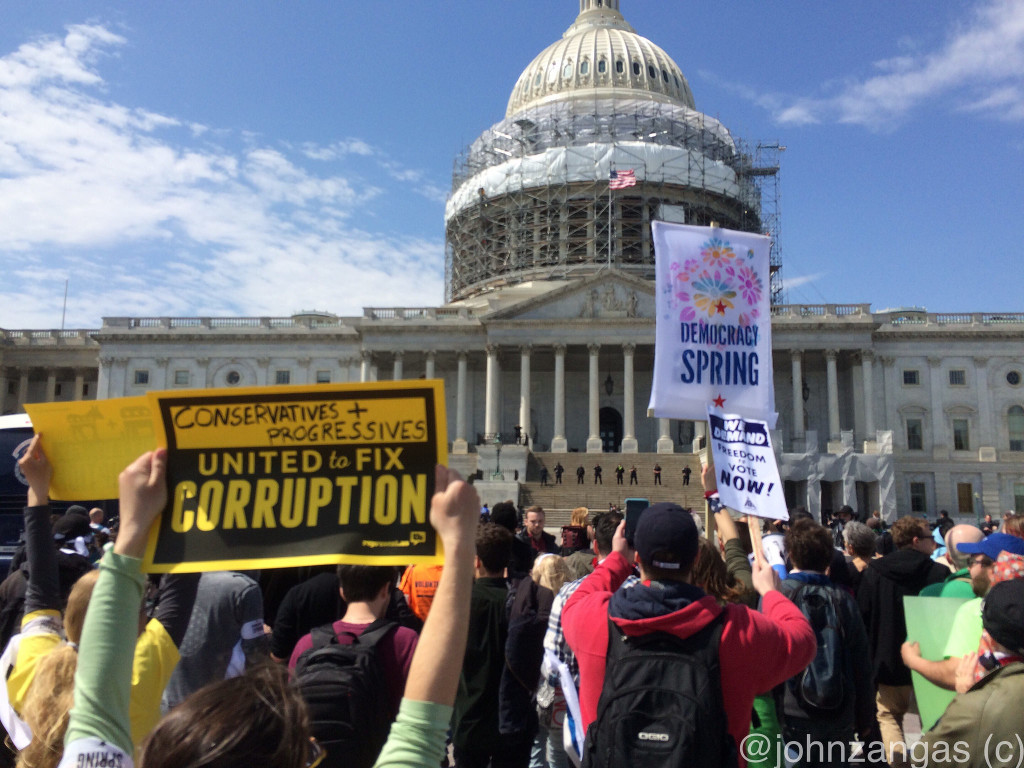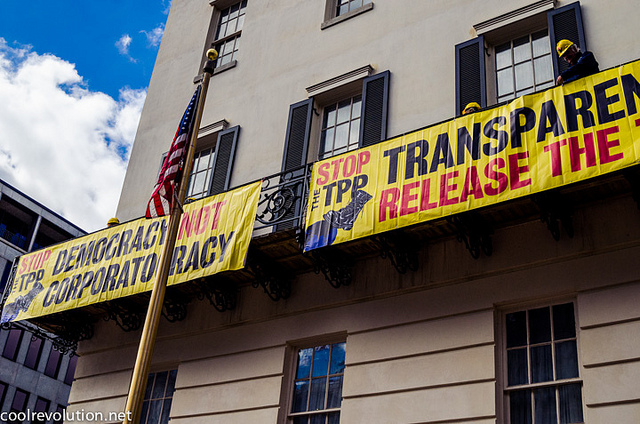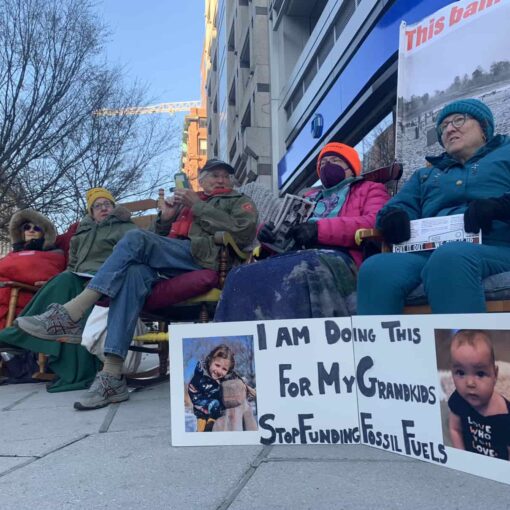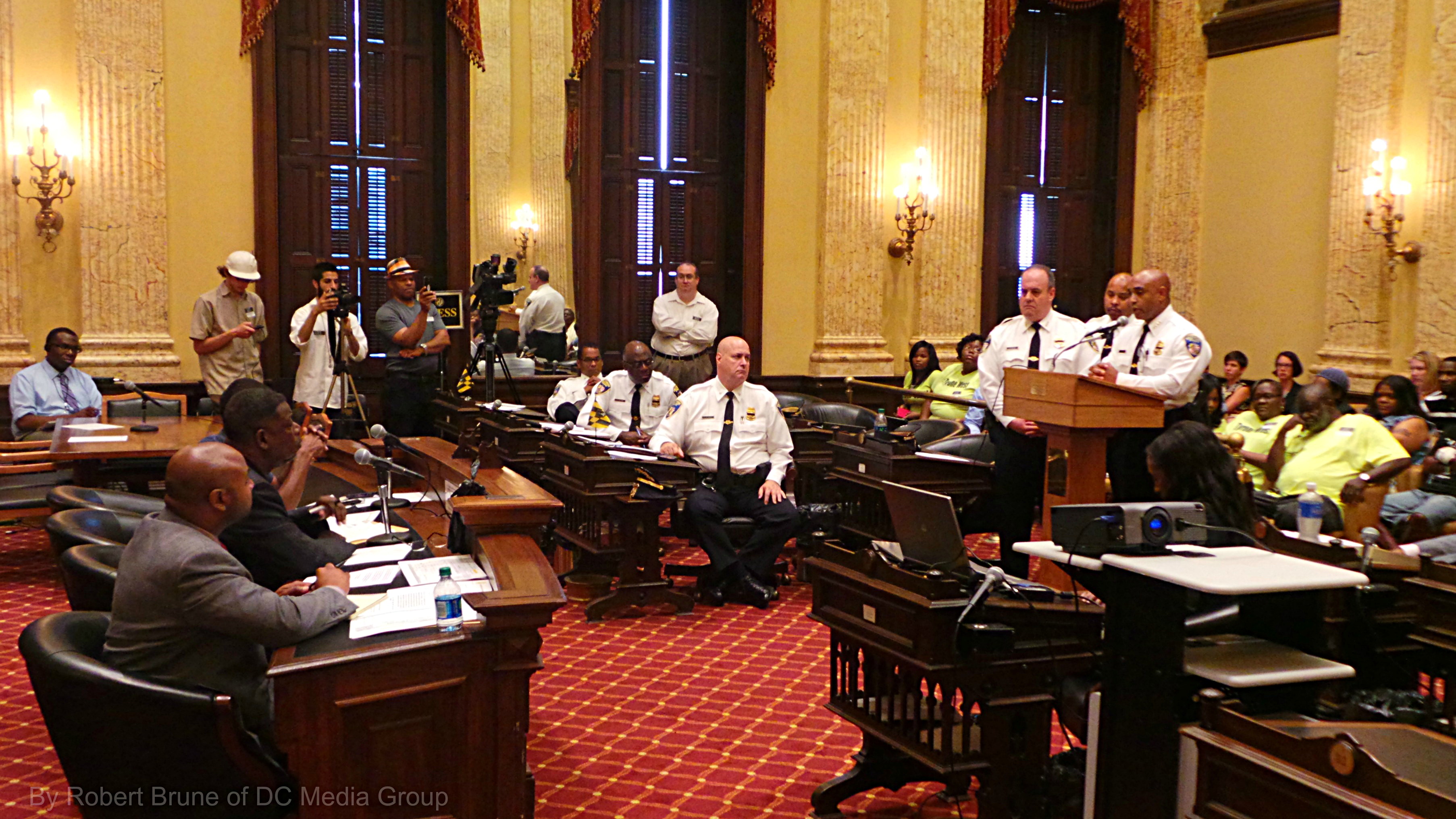Washington, DC – Over 400 Democracy Spring protesters were arrested Monday at the U.S. Capitol on the first day of eight days of planned protests. It was a record number of arrests in one day for a protest there, according to U.S. Capitol police. At one point, police had to stop processing arrests because the jail was full.
Cenk Uygur, host of the TV show Young Turks was among the last few people that police removed from the Capitol steps. He said it was his first arrest and he expected there to be many more. “The next time we come here I don’t think they’re going to have enough buses to arrest us all,” he said. It took nearly four hours and 15 bus loads for police to remove all the protesters involved in Monday’s sit-in.
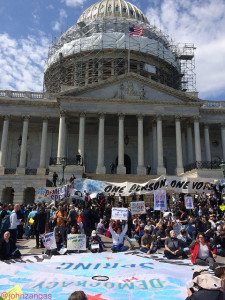
Democracy Spring kicked off on April 2 with a 10-day march from Philadelphia to Washington, DC. About 135 took part in the 140-mile walk. David Schwank, a walk participant, said that he was inspired to join the protests for many reasons. “We have so many problems in our country, from environmental devastation to [un]fair wages and it all relates back to campaign finance reform,” he said. Schwank was also among those arrested Monday.
Organizers planned an eight-day series of actions involving major groups which have expressed dissatisfaction with legislative agendas. They said they hoped the coming week of civil disobedience actions would be the beginning of a people’s grassroots movement to start wrestling control of the Congress from corporate moneyed interests.
“We need a mass non-violent movement to end the corruption of big money in our politics with free and fair elections that give us all an equal voice,” said Kai Newkirk, Campaign Director of Democracy Spring. Newkirk bemoaned the privileged access that wealthy enjoy with legislative agendas, saying they naturally lead to inequality. “All the expressions of economic inequality and injustice, mass incarceration, police brutality, institutional racism, are certainly among the most urgent fights and on all of those fronts we have to win on breaking the grip of corruption in our democracy,” he said.
Participants traveled from across the country with a variety of complaints leading them to join Democracy Spring. But one of the core issues activists are challenging is a Supreme Court ruling known as Citizens United v. Federal Election Commission (2010), which gave corporations and the wealthy the right to unlimited campaign funding.
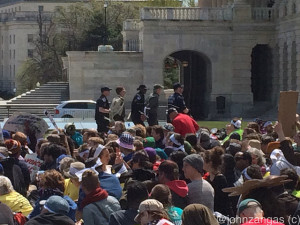
“There’s not a piece of legislation that’s ever going to see the light of day if it doesn’t benefit corporations,” said Barry Knight, an activist who traveled from Massachusetts.
A Princeton study found that the U.S. government resembled a corporatocracy more than a democracy as a result of money controlled governance.
“I think it’s time for us to put our bodies on the line and stand up for some of the values we believe in and reclaim our democracy,” said Lillyanne Daigle, an activist from Washington, DC. She said that equal rights were among her main concerns.
The eight days of actions will include civil disobedience with arrests planned each day at the U.S. Capitol. On Tuesday, April 12, Democracy Spring will highlight issues with Elders Activists, a group of Senior Americans who work on social justice.
Wednesday, April 13, Democracy Spring will enjoin organizations working for migrant and racial justice. Thursday, April 14 will be Labor solidarity Day. Unions such as the Teamsters and Labor groups such as OURWalmart will focus on labor issues.
On Friday, April 15, the focus will be on student and youth constituent issues. Saturday, April 16, will be environmental justice day. Sunday, April 17, will be Democracy Awakening.
“We’re here to say to Congress you need to take action or you’re gonna have to send us all to jail,” said Newkirk.
To sign up for Democracy Spring go here.
- Photo by John Zangas

